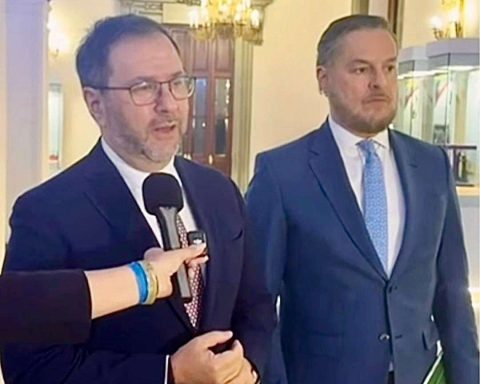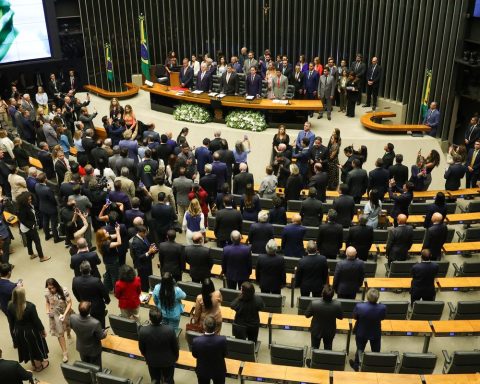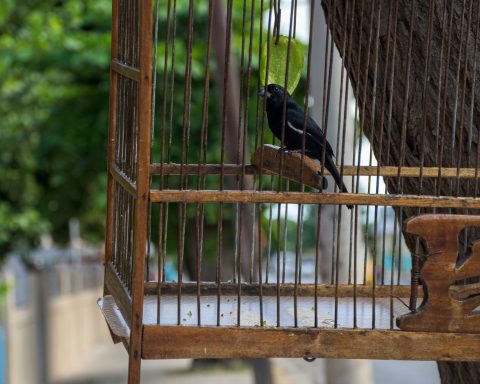“They have been paying us in arrears for some time, but this time the delay was long. The second week of November they just canceled the month of September. We spent two months without pay, both the squad and the coaching staff. In fact, some teachers just left. The club’s response is always that they are in poor financial condition,” says Vivi Torres, striker for the Fernández Vial women’s team.
Added to the above is the non-payment of accommodation for players who do not live in Concepción. “Several have had to leave their pensions and seek refuge with friends, others are threatened with eviction. We have continued training and working because we are fighting the play offs and we do not want to lose the classification. We are supposed to be professionals, some of us work as well as train and play, but the majority live –with difficulty– from this. Young football also has problems”, continues the footballer.
According to the National Association of Women’s Soccer Players (Anjuff), they have no news of another debt situation in the country. However, regarding the bone scan carried out last year by them, in conjunction with the University of Chile – which revealed disastrous and highly precarious conditions in women’s soccer –, the situation today has not changed much.
This survey revealed, among other things, that only 10% of the athletes dedicated themselves exclusively to this work. 90% received no pay or were paid less than 100,000 pesos for their work; only 4.4% had a labor contract, 19% a verbal agreement and 61% only had registration to participate in the ANFP championship.
“Since then, there has not been a great variation in terms of contracts, also in infrastructure conditions, access to dressing rooms, hot water showers, training schedules…”, he details. the sociologist and vice president of the Association of Researchers of Chilean Soccer (Asifuch), Carolina Cabello.
“We were once told that women’s soccer was not profitable because it does not generate the income that men’s soccer brings. The truth is, I think that this is because the men’s club had a bad campaign, but the leaders favored other things and not women’s football and its minor categories. Organizational problem”, says Vivi Torres, from Fernández Vial.
In September 2016, the South American Football Confederation (Conmebol) made a series of modifications to its bylaws and Club Licensing Regulations to encourage the development of women’s football in South America, with a view to the Libertadores and Sudamericana Cups. Today it requires clubs to have a women’s team. “The applicant must have a women’s first team or be associated with a club that owns it. In addition, he must have at least one female youth category or be associated with a club that has one. In both cases, the applicant must provide technical support and all the equipment and infrastructure (playing field for the dispute of matches and training) necessary for the development of both teams in adequate conditions ”, she declares.
Six years later, the situation in the region is disparate and highly amateurish. They all agree on one thing: women’s football is not financed. There’s the knot.
structural reform
“For the clubs it is a cost and not an investment”; “Conmebol only pays part of the expenses and almost always to the clubs that play international tournaments, the others do not receive contributions, and they are not interested in spending on women”; “Due to costs, the clubs do not have women’s football and they only put together teams to qualify”, are phrases in off of different actors in the sector that justify inertia and even resistance to level the playing field.
Conmebol provides a contribution to finance and encourage women’s soccer. These revenues enter the coffers of the Chilean Football Federation. “The money is used in a discretionary manner by the Federation and the ANFP, in what they consider pertinent for the development of the female campuses. Today, as far as we know, most of these resources are directed to the operation of the national championship. That is, in transportation, food and others, which allows the clubs to save and allocate their resources to other areas”, explains the director of Anjuff, Camila García.
And he adds: “I think it is important and necessary to increase transparency in terms of investment in women’s football. Having disaggregated data, knowing where and how the money that comes from Conmebol or FIFA or even from the ANFP itself is spent. Thus, even the private sector would have more clarity about where the projections are going and see how to get involved in the long term.”
The researcher Carolina Cabello agrees on the lack of clarity about the silvers:
“I understand that the last contribution that Conmebol made to the Federation was $500,000 in the context of the pandemic, so that women’s soccer could resume. activities. The truth is that we do not have access to know how they were distributed among the clubs or if the Federation used it for something else. It should have been distributed, but there is no access and they only deliver information to the Commission for the Financial Market and the Superintendency of Securities and Insurance. There are balance sheets, memory, global figures, general budgets, so it is not known how they were distributed. There is a latent conflict of interest there, because it may have been distributed to the clubs and they, in turn, have distributed them among their shareholders because the law allows it”.
But going from being a cost to an investment is the great challenge of the activity. This requires will and work.
“Medium and long term planning. This includes the clubs and the ANFP and the Chilean Football Federation, today both entities are involved in a legal situation that has put Conmebol and FIFA on alert. They have indicated that they have to separate. As long as they are together, business interests will be confused and lines of action cannot be strategically planned. That’s the first thing: a reform of the structure of Chilean football to plan for the medium and long term. Secondly, it is important that women can advance in political representation in spaces where decisions are made, in this case in the Council of Presidents of the ANFP, which today is made up of 32 men. It has just been renovated and is made up 100% of men,” says Cabello.
And in this regard, he continues: “These are alarming figures where there is zero female participation, a 100% gender gap, no woman participates in these spaces. Thus, women’s football will always be the last point in the table, what matters least in the agendas of these businessmen who participate in Chilean soccer clubs. It is also necessary to advance in the recognition of the history of Chilean women’s soccer, which is more than 100 years old and has been made invisible. It is necessary to make economic redistribution. Because here it is not that the public limited companies do not have money, but that it is poorly distributed: of 100% of a club’s budget, 98% goes to men’s soccer, 2% to women’s, since the club is the same ” , points out the researcher.
law obliges
Seeking to regulate women’s soccer, but above all to order the labor issue, legislation was passed in this regard. Thus, on October 10, Law No. 21,436 of Professionalization of Women’s Soccer. This establishes a blog that will culminate in three years, with all the contracted soccer players. In addition, the outsourcing of the administration and management of women’s football must be ended. It also establishes state resources to which clubs may apply to finance the women’s branch for the next 5 years.
“NOr we must forget that in this country, if there is no legislation, social security simply does not advance. A decade ago it was men’s soccer that was fighting for its prices. I am completely convinced that if there was no Postnatal Law of almost 6 months… we would still be at 2 and a half months”, says the deputy and member of the Sports Commission of the Chamber, Érika Olivera, promoter of this norm.
The parliamentarian highlights that tAll institutions that comply with the law will be authorized to apply for the benefits of the National Fund for the Promotion of Sports and donations for sports purposes for 5 years. This, with the specific purpose of developing women’s football.
“It must be noted thatThe clubs have time to adjust, since the gradualness of the initiative contemplates that during the first year it will be required to hire at least 50% of the players, in the second to 75% and in the third to 100%”, he explains.
However, how interested are public limited companies in this formula? The president of the O’Higgins Sports Club, Pablo Hoffmann, responds: “The financing of the clubs in general is precarious and it costs us a lot of effort and money to pay the payrolls (salaries) of the male professional players. If by law we are forced to remunerate female professional players, precariousness will increase, since the law imposes costs on us, but it does not generate resources for us. Consequently, I believe that the law, instead of helping the development of women’s football, will stagnate it.”
And, in this sense, he proposes a solution: “What This law obliges ANFP members to play professional soccer, thereby limiting the ability of a number of clubs that are active in women’s soccer leagues and associations to do so. The solution, in my opinion, is for the players themselves to group together in clubs and associations. To do this, they could take advantage of two contingent situations: the first is that the current Chilean Football Federation has to be reformulated and those clubs and associations can form a Professional Women’s Football Association. As a starting point, they would have a good amount of FIFA and Conmebol resources that today they deliver to the Chilean Federation. They would manage these resources themselves, they could look for new income, which individuals and companies are not willing to support in the current conditions, but they would certainly do so if there is a Women’s Football Association. Who better than them direct their own destiny? And the second thing is that they will be able to join the new Chilean Football Federation in order to receive the resources.”
Carolina Cabello warns that we must be careful that the law does not remain a dead letter. “There is a key precedent: the modification that was made to the Sports Law with the inclusion of the harassment protocol against all types of arbitrary discrimination in sport, which has been going on for a few years. However, very few clubs have updated their statutes. It is probable that the clubs – which are mostly public limited companies and which by definition seek economic returns for their shareholders, promote profit rather than development and investment in the activity itself – seek a way out to avoid the basis of the law : that the athletes have a contract, a salary”.
Deputy Olivera appeals to honor. “The Women’s Soccer Law is just the beginning. We still have a long way to go and, as a deputy and member of the Sports Commission, I will be attentive and we will monitor this issue and all those who come. We know that there are many interested in women’s football not advancing. In Europe women’s football fills stadiums, why refuse if not for machismo and lack of culture?”
For Anjuff there is no magic wand to solve the problems, which are framed in a broader context of discrimination against women in our country. “The only way is for all the players to commit to taking football to the top, and start comparing ourselves to countries that have taken this path and are seeing the fruits today. This requires thinking differently, so as a first At the same time, it was important for us to recognize that the players are hard workers. Now we have to push collectively so that they perform in the best possible working conditions. Thus, endowing them with dignity and, also, creating a dynamic of high performance that results in greater competitiveness at the local level and greater international victories”, emphasizes the director Camila García.


















